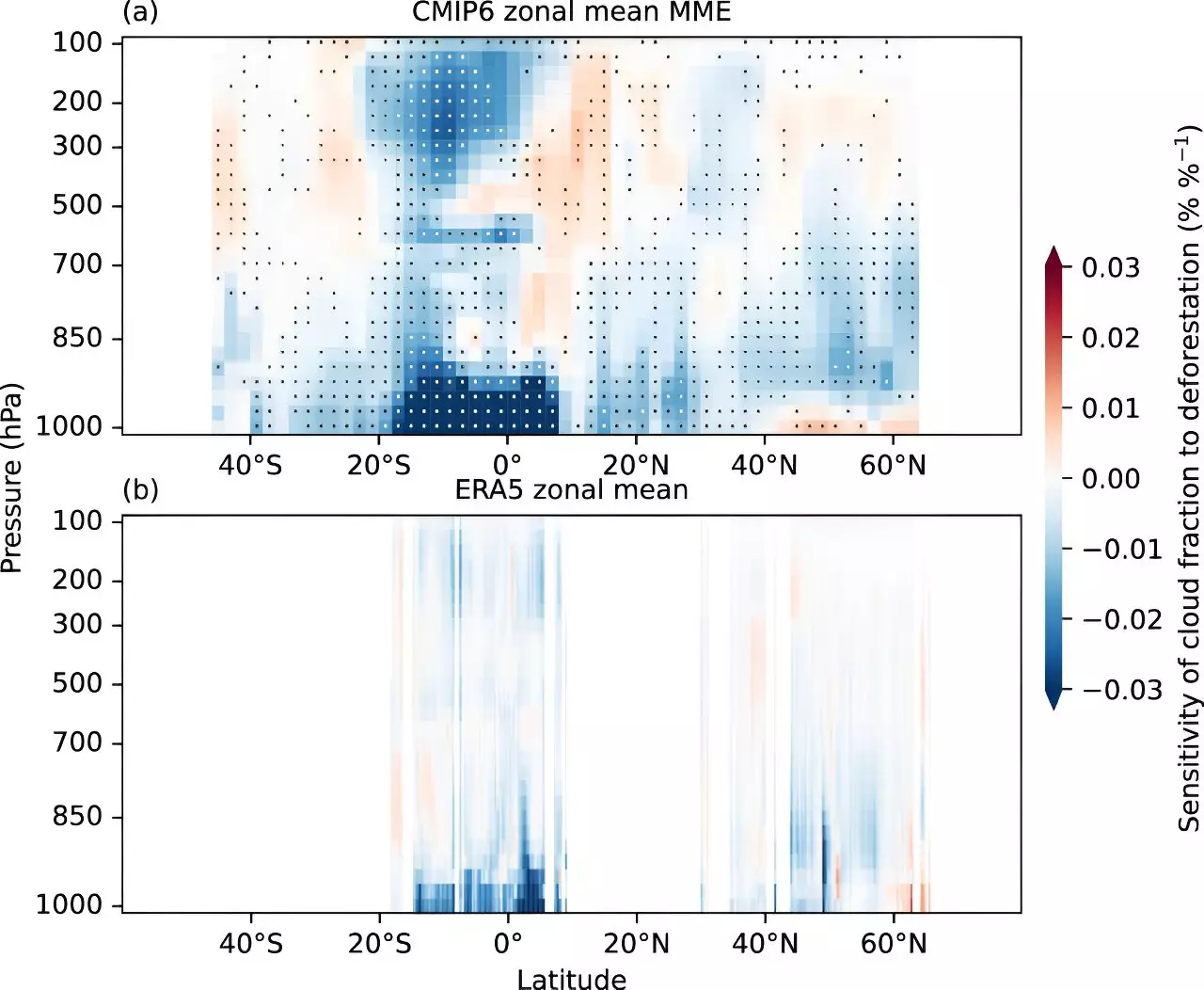Recent research conducted by a collaborative team from iDiv, Leipzig University, and Sun Yat-sen University has shed new light on the intricacies of climate change exacerbated by large-scale deforestation. Contrary to longstanding beliefs, the effects of clearing forests extend beyond mere carbon emissions; they significantly alter cloud cover and, therefore, the Earth’s temperature regulation. This study, published in *Nature Communications*, presents a comprehensive analysis of computer simulations coupled with observational data, revealing that deforestation leads to a notable reduction in cloud cover, which may intensify global warming.
Cloud Dynamics and Radiative Balance
The study highlights a critical yet often overlooked factor in understanding the impacts of deforestation: the intricate relationship between clouds and climate. Dr. Hao Luo, the study’s lead author and a researcher at Leipzig University, explains that both tropical high-level clouds and global low-level clouds experience a decline due to extensive tree removal. Low-level clouds, in particular, are pivotal for climate stability since they play a role in reflecting incoming sunlight back into space. When these clouds diminish, the reflective capacity of the Earth’s atmosphere is compromised, allowing more solar radiation to penetrate and contributing to an increase in surface temperatures.
The research indicates that while deforestation traditionally emits carbon dioxide, which is known for its warming potential, the darker landscape created by the absence of trees contrasts with the cooling effects of forested areas—where light is more effectively reflected. This duality means that any cooling effect derived from the darker, cleared zones is substantially mitigated by reduced cloud cover, thus amplifying the warming trajectory instigated by rising carbon levels.
In their investigation, the researchers employed advanced climate models alongside earlier data analyses to uncover insights into the atmospheric alterations triggered by deforestation. They specifically focused on how changes in surface turbulent heat flux affect moisture and uplift in deforested regions, directly influencing cloud formation. Professor Johannes Quaas emphasizes the significance of understanding these meteorological processes, noting that the absence of trees disrupts the natural balance and environmental functions that forests provide, including their role in fostering cloud formation and maintaining Earth’s radiative balance.
This groundbreaking work opens up new avenues for exploration regarding the interplay between deforestation, biodiversity, and climate dynamics. There is still much to uncover about how varying degrees of forest biodiversity influence cloud formation and, consequently, climate patterns. Notably, as researchers from the fields of meteorology and biology collaborate, it becomes increasingly clear that sustainable forest management is vital not just for carbon storage but also for maintaining essential climatic functions that ensure the stability of our environment.
The findings of this study serve as a crucial reminder that effective action against climate change must encompass a broader understanding of ecological interactions. Protecting forests is an imperative that transcends the narrative of carbon dioxide emissions alone; it encompasses a holistic view of our planet’s climatic system. As scientific inquiry continues to reveal the multifaceted impacts of human activities, policymakers and conservationists alike are urged to recognize the intrinsic value of forests in the fight against climate change, ensuring a sustainable future for generations to come.


Leave a Reply